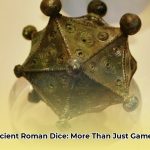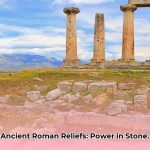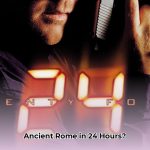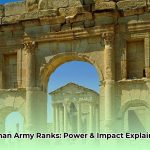Ancient Rome, a civilization that profoundly reshaped the course of human history, continues to captivate and instruct. Its influence echoes in our governance systems, legal frameworks, architectural marvels, and even our understanding of human ambition. But what truly drove this colossal empire, and how did its central figures, the “men from ancient Rome,” sculpt its remarkable trajectory? Beyond the well-worn narratives of emperors and gladiators, the individual choices and actions of these pivotal Romans offer exceptionally valuable insights. These lessons remain profoundly relevant to contemporary challenges in leadership, governance, and societal values.
This comprehensive article delves into the lives of key figures, from the formidable Julius Caesar to the resilient Spartacus, to uncover timeless principles. It aims to enlighten historians, provide essential cautionary tales for modern political officials, and guide cultural institutions in preserving these critical historical lessons for future generations.
The Man from Ancient Rome: Pivotal Figures and Their Lasting Impact
Ancient Rome’s monumental legacy is inextricably linked to the individuals who molded its progress. Their actions resonate across millennia, offering deep insights into the intricacies of power, strategic thinking, and human resilience. By meticulously examining these compelling historical figures, we can uncover actionable intelligence directly applicable to modern leadership and policy-making.
Julius Caesar: The Master of Calculated Risk
Julius Caesar’s name immediately conjures images of unparalleled military genius and astute political maneuvering. He was far more than a mere conqueror; he was a visionary, consistently thinking several steps ahead in both his audacious campaigns and intricate political strategies. His calculated decisions irrevocably reshaped the very fabric of the Roman Republic, laying the groundwork for its imperial future.
Actionable Insight: Caesar personified the power of calculated risk-taking. His audacious crossing of the Rubicon in 49 BCE, a direct defiance of the Senate’s authority, transformed the course of Roman history. This decisive action propelled him to immense power, yet it simultaneously set the stage for his dramatic assassination. Modern leaders can learn from this complex legacy: bold vision is essential, but it must be meticulously balanced with a profound understanding of potential ramifications and the implementation of careful mitigation strategies. Was Caesar’s boundless ambition his greatest strength, or did it, paradoxically, blind him to the looming dangers that ultimately led to his tragic downfall? His story underscores the razor-thin line between daring innovation and perilous overreach.
Augustus: The Architect of Enduring Stability
Following Caesar’s tumultuous end and the ensuing power struggles, Octavian, later known as Augustus, emerged to stabilize a fractured Rome. His ambition transcended mere rule; he meticulously sought to establish an enduring governmental framework. The resultant Pax Romana, an unprecedented era of widespread peace and prosperity that spanned over two centuries, stands as his remarkable creation. How did he achieve such sustained stability across a vast and diverse empire, transforming a war-weary republic into a golden age of imperial rule?
Actionable Insight: Augustus demonstrated that building a truly lasting legacy necessitates a clear, long-term strategic vision underpinned by meticulous execution. His unwavering focus on critical infrastructure, including extensive road networks, efficient aqueducts, and the formal establishment of the Praetorian Guard, alongside robust cultural development and the restoration of traditional Roman virtues, fostered a profound sense of unity and stability throughout the Roman world. Contemporary leaders can adopt this approach by prioritizing sustainable growth and foundational improvements over ephemeral, short-term gains. Are today’s organizational leaders focused on fleeting successes, or are they genuinely committed to constructing a resilient framework that will benefit future generations and withstand the rigorous scrutiny of history?
Nero: A Potent Warning on Unchecked Power
Nero’s reign offers a poignant contrast to the successes of his predecessors and provides a critical lesson in governance. Often remembered for his unparalleled extravagance, artistic pretensions, and tyrannical rule, his actions—from his rumored involvement in the Great Fire of Rome in 64 CE, which devastated much of the city, to the severe persecution of Christians—paint a stark picture of power exercised without accountability. His notorious decisions led to widespread dissent, numerous conspiracies, and ultimately, his forced suicide.
Actionable Insight: Nero’s narrative powerfully illustrates the inherent perils of absolute, unbridled power. Without robust mechanisms of accountability, ethical oversight, and transparent checks and balances, individuals in positions of authority can easily succumb to corruption, self-indulgence, and egregious abuse, leading to catastrophic societal consequences. Policymakers and corporate executives today must prioritize unwavering transparency, implement strict ethical guidelines, and establish clear oversight structures to prevent similar abuses. Nero’s story unequivocally underscores the vital importance of systemic accountability in any functional government or organization, serving as a timeless reminder of human fallibility.
Cicero: The Apex of Persuasion and Oratorical Influence
Unlike formidable military generals or reigning emperors, Marcus Tullius Cicero commanded immense influence not through armed legions or imperial decrees, but through the sheer, transformative power of his intellect and unparalleled eloquence. As a preeminent philosopher, lawyer, and orator, his words profoundly shaped Roman public opinion and significantly influenced the complex, often tumultuous, trajectory of republican politics during Rome’s late Republic period. His impactful speeches, such as the “Philippics” against Mark Antony, resonate through history as masterpieces of persuasive rhetoric.
Actionable Insight: Cicero’s extraordinary life exemplifies the transformative power of impactful communication. His meticulously crafted speeches and profound philosophical writings, including “On Duties” and “On Friendship,” left an indelible mark on Latin literature and Western political thought, demonstrating the capacity of rhetoric to sway nations, inspire action, and articulate complex moral dilemmas. Modern leaders can draw extensively from his mastery of language and his unparalleled ability to articulate complex ideas persuasively, whether addressing shareholders, constituents, or colleagues. What kind of lasting impact are contemporary communicators striving to achieve with their words, and how effectively do they engage, inform, and persuade their diverse audiences?
Trajan: The Emperor of Strategic Expansion and Public Welfare
Marcus Ulpius Traianus, commonly known as Trajan, is widely regarded as one of Rome’s most effective and benevolent emperors. A highly skilled military commander, he successfully expanded the Roman Empire to its greatest territorial extent, an achievement of formidable strategic planning and military prowess during campaigns in Dacia and Parthia. Crucially, Trajan was equally committed to significantly improving the lives of his citizens, expertly balancing ambitious conquest with profound civic responsibility and administrative reform.
Actionable Insight: Trajan’s reign vividly demonstrates that authentic leadership encompasses both strategic expansion and dedicated public service. He invested substantially in vital public works, constructing an extensive network of roads across the empire, bridges, and aqueducts, most famously Trajan’s Forum and Trajan’s Column in Rome, which meticulously documented his Dacian victories. This holistic approach ensured that territorial gains translated into tangible improvements for the populace, enhancing their daily lives and integrating peripheral regions through improved infrastructure. How are today’s leaders contributing to the collective well-being of their constituents, balancing organizational growth with a steadfast commitment to societal enrichment and infrastructure development?
Spartacus: The Enduring Symbol of Resistance Against Oppression
Spartacus, a Thracian gladiator, led a large-scale rebellion of enslaved people against the powerful Roman Republic from 73 to 71 BCE. While his monumental revolt, known as the Third Servile War, was ultimately suppressed by Roman legions, his story embodies the indomitable spirit of resistance in the face of overwhelming oppression. His courageous fight for freedom, challenging the very foundations of Roman society, continues to inspire movements for justice and liberation globally.
Actionable Insight: Spartacus’s audacious rebellion serves as a poignant reminder that concerted resistance against pervasive injustice can ignite hope and catalyze profound change, even in the bleakest of circumstances. He courageously challenged an established, brutal social order and fought passionately for fundamental human liberty against overwhelming odds. His legacy prompts critical self-reflection: Do we possess the courage to confront systemic injustices and advocate for our deeply held beliefs, even when facing significant adversity or entrenched power structures? His struggle for self-determination remains a powerful testament to the human spirit’s yearning for freedom.
Quick Insights: Lessons from Roman Luminaries
| Figure | Key Trait | Actionable Lesson |
|---|---|---|
| Julius Caesar | Military Prowess | Calculate risks meticulously, considering all potential consequences and ethical implications. |
| Augustus | Strategic Thinking | Build for the long term, prioritizing stability, infrastructure, and cultural development. |
| Nero | Absolute Authority | Power necessitates strict accountability, ethical oversight, and robust checks and balances. |
| Cicero | Eloquence | Utilize communication to inspire, persuade, and ethically shape public opinion and policy. |
| Trajan | Balanced Leadership | Achieve growth through both strategic expansion and dedicated, tangible public service. |
| Spartacus | Resistance | Stand resolutely against injustice and systemic oppression, fostering hope in adversity. |
These six memorable figures were instrumental in forming the enduring legacy of the man from ancient Rome. Their diverse actions, momentous decisions, and lasting marks on history offer invaluable insights into nuanced leadership, effective governance, and fundamental human principles. By comprehensively understanding their profound impact, contemporary audiences can gain actionable knowledge about one of history’s most influential civilizations and apply its lessons to the intricate complexities of today’s world. What unexplored secrets of ancient Rome will you uncover and effectively utilize to inform your own decisions? Ongoing historical research consistently sheds new light on these iconic figures, ensuring our collective understanding continually evolves and deepens.
How Did Romans Influence Governance? An Enduring Blueprint
Ancient Rome’s governance systems were revolutionary for their time, leaving an indelible imprint on modern political thought and legal frameworks. Their republican ideals, sophisticated legal structures, and groundbreaking administrative innovations have profoundly shaped contemporary governance globally. Indeed, the echoes of Roman political principles resonate clearly in constitutional democracies and legal codes throughout the modern world.
The Republic’s Enduring Governmental Legacy
Have you ever systematically considered how Romans influenced governance in our modern world? Rome’s republican system, formally established in 509 BCE after the expulsion of the monarchy, pioneered the concept of citizen involvement through the selection of elected officials. Assemblies, such as the influential Comitia Centuriata (which elected senior magistrates) and the Concilium Plebis (which passed laws binding on all citizens), empowered citizens to actively vote for their leaders and enact legislation, marking a significant and progressive departure from earlier monarchical systems. This foundational form of representative governance, where ultimate authority theoretically resided with the people rather than a singular hereditary ruler, provided a crucial blueprint for numerous contemporary democracies, including the foundational principles embedded in the United States Constitution. The US Constitution, with its emphasis on elected representatives, bicameral legislature, and the deliberate separation of powers among executive, legislative, and judicial branches, directly embodies core elements of Rome’s vision for a government demonstrably accountable to its citizenry.
However, the true extent of democratic participation within the Roman Republic remains a complex and ongoing subject of scholarly debate. Despite documented citizens’ voting rights, the pervasive influence of powerful and affluent patrician families frequently constrained the political power of the plebeians, or commoners. The Roman Senate, largely composed of elite patricians and former magistrates, wielded immense advisory and legislative influence over Roman political affairs, frequently leading to significant social tensions and necessary reforms throughout the Republic’s expansive history, such as the Lex Hortensia in 287 BCE, which made plebiscites binding on all citizens. Moreover, the distinctive Roman institution of a “dictator”—a temporary leader specifically appointed during acute emergencies, such as military crises, to consolidate power for a limited duration—further complicates a purely idealistic interpretation of their republican ideals, showcasing a pragmatic approach to governance in times of extreme peril.
The Foundational Pillars of Roman Law
Roman law stands as arguably the most significant and enduring contribution to modern governance and legal systems worldwide. The Twelve Tables, meticulously established around 450 BCE and publicly displayed in the Roman Forum, represented the first comprehensive codification of Roman law, systematically articulating citizens’ rights and responsibilities and establishing a written standard for all legal proceedings. Isn’t it truly remarkable how many modern civil law systems worldwide—from the Napoleonic Code influencing Europe to legal frameworks in vast parts of Asia and South America—trace their fundamental origins directly back to Roman law, profoundly underscoring its colossal, centuries-spanning influence on both national and intricate international legal frameworks? Core concepts like the principles of trial by jury (though different from modern forms), the presumption of innocence (“innocent until proven guilty”), the intricate nuances of civil liberties, the enforceability of contracts, the legal framework for wills and property rights, and the concept of equity (fairness in applying law) all find their foundational roots deep within the established Roman legal tradition. This systematic approach to law provided a stable and predictable environment crucial for Rome’s vast administration and burgeoning commerce.
From Republic to Empire: A Powerful Cautionary Narrative
The gradual and momentous shift from the Roman Republic to the Roman Empire under Emperor Augustus carries a powerful and timeless warning about the inherent fragility of democratic institutions when faced with concentrated power and popular disillusionment. Although Augustus meticulously maintained the outward appearance of shared leadership and republican ideals—referring to himself as princeps (first citizen) rather than king—he systematically consolidated immense power by ingeniously combining military, political, and civic authority under his singular control. He controlled key legions, held multiple magistracies concurrently, and had tribunicia potestas, the power of a tribune without being one. The once-mighty Roman Senate, a pivotal governing body, progressively became more ceremonial, its profound influence steadily diminishing over time as it ratified Augustus’s decisions rather than initiating its own. This historical precedent critically underscores the inherent potential for power to dangerously concentrate, even within systems ostensibly committed to democratic principles, when checks and balances weaken, and charismatic leaders exploit societal unrest. Learn more about Roman government and its complex evolution from republic to empire.
Essential Lessons for Contemporary Governance
Despite the eventual decline and transformation of the Republic, the profound legacy of Roman governance undeniably endures within numerous modern political systems. The fundamental ideas of citizen representation (even if imperfectly realized), the structured implementation of codified law, sophisticated administrative frameworks (such as bureaucracy and provincial organization), and even the architecture of public buildings all trace their origins back to the foundational Roman civilization. What comprehensive lessons can we extract from their complex history today? By rigorously scrutinizing the successes, monumental failures, and intricate adaptations of Roman governance, contemporary leaders and engaged citizens can glean invaluable insights into the persistent challenges of maintaining a just, effective, and resilient political system capable of withstanding the trials of time and societal change, while vigilantly protecting against authoritarian tendencies.
The Essential Steps to Study Roman Leadership Styles
What made the Roman Empire so remarkably dominant for such an extended period? It was not solely about superior military force or vast resources. Roman leaders possessed a unique combination of qualities that enabled them to conquer, govern vast territories, and inspire loyalty effectively across diverse populations. Their enduring principles offer highly valuable, actionable insights for today’s executives, human resources departments, project managers, and government officials navigating complex modern landscapes. But where does one begin to effectively undertake the study of Roman leadership styles to extract these profound lessons?
Step 1: Embrace Strategic Foresight and Implement Robust Mentorship Programs
The Romans were unparalleled masters of visionary planning and long-term strategy, exemplified by their centuries-long expansion and the durability of their institutions. Can modern organizations directly learn from their meticulous foresight, which often spanned generations rather than mere fiscal quarters? Absolutely. Their strategic capabilities allowed them to anticipate challenges, build durable solutions, and adapt to evolving circumstances.
Actionable Insight: Contemporary executives can strategically implement structured mentorship and career progression programs, directly mirroring the Roman cursus honorum (a fixed sequence of public offices ranked by importance, which aspiring politicians typically sought to hold). This merit-based system fostered talent by requiring individuals to gain experience in various civil and military roles before ascending to higher positions, ensuring a pipeline of capable, experienced, and well-rounded leaders. Consider this a Roman-inspired leadership incubator, cultivating talent from within and preparing future generations for complex roles with an impressive historical adherence rate to civic duties and a deep understanding of governance.
Step 2: Adopt a Disciplined Project Management Approach for Monumental Success
Roman engineering feats, such as the intricate aqueduct systems, formidable fortifications like Hadrian’s Wall, and enduring road networks spanning thousands of miles, continue to inspire awe and demonstrate unparalleled efficiency, precision, and scalability. How did they consistently achieve such incredibly ambitious results with precision, scale, and remarkable longevity? Their methodologies were fundamentally disciplined, relying on standardized designs, modular construction, and organized labor.
Actionable Insight: Modern project managers can significantly enhance their efficacy by adopting disciplined project management methodologies, rigorously adhering to clearly defined roles, precise timelines, meticulous resource allocation, and stringent quality control—principles that were fundamental to every successful Roman infrastructure project. Think of this approach as channeling your inner Roman engineer, systematically conquering complex project deadlines and ensuring rigorous quality control with remarkable consistency and durability that withstands the test of time.
Step 3: Invest in Long-Term Infrastructure and Foster Robust Diversity
The Romans did not merely build structures for immediate needs; they constructed for the distant future, creating enduring public works that benefited subsequent generations and solidified imperial control. What if contemporary governments adopted a similar long-term investment perspective, prioritizing resilience and future prosperity over immediate political gains? Their infrastructure facilitated trade, military movement, and the daily lives of citizens.
Actionable Insight: Government leaders can substantially improve the quality of life for










